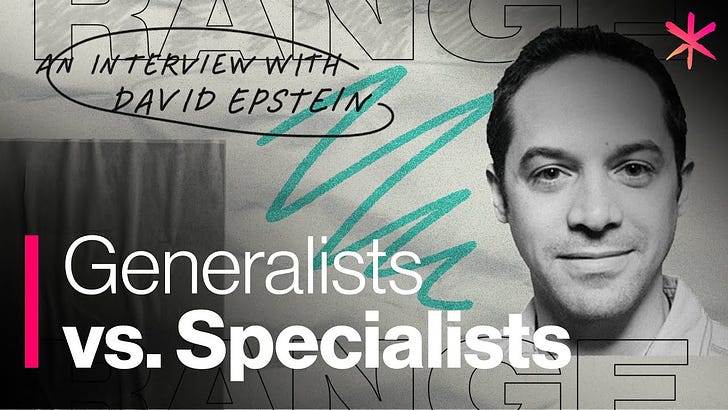Hey, there friend!
Everyone around me and I am sure around you as well keeps talking about niche these days. You must find it, cultivate it, hone it, and be the best at it. Social media people seem to love the word more than anyone. But should you even blindly keep chasing a niche?
The basic idea behind a niche is a specialization or rather hyper-specialization. Pick a particular skill and be the best at it. Stop calling yourself a visual artist, start calling yourself a UI Typographer Expert. Keep niching down till you reach a very definite skillset and master it because that is the way to be super successful and earn the big bucks.
And yet this is an obscure way of approaching your career. Mainly because we live in a dynamic world, we live in a world that is constantly changing, a world that keeps levelling up, and a world that is interdisciplinary. A world facing a climate crisis, resource shortage, faltering democracies, growing intolerances, smarter technologies, and novel developments in every field every other day.
Let’s talk about 2017, shall we? Close your eyes for a moment and try thinking about the person you were in 2017 and the world around you back then.
What goals were you chasing, what vision did you have and how did the world function back then? I am pretty sure you will realize just as I have, that things have drastically changed in the world in general and thus by extension in our lives. 5 years. That’s how far 2017 was and yet it feels so distant because we are moving forward so rapidly, we are travelling at lightspeed.
No one can predict or guarantee what’s to come in 10 years, or 20, or 30.
How foolish is it then to plan a career thinking about the big picture? Thinking about the future we don’t have any idea about?
David Epstein, the author of Range: Why Generalists Triumph in a Specialized World talks about the two learning environments.
A ‘kind learning’ environment that consists of straightforward recognizable patterns and systems that aid in learning and most importantly where the work remains the same. In a ‘wicked learning’ environment, there are no patterns, the matter at hand is complex and keeps changing over and over again. He says fields like sports provide a ‘kind learning’ environment, where the path towards success lies in focusing only on honing the skill by doing it over and over again. But most of the other real-world work dapples in a ‘wicked learning’ environment.
There are numerous forces at play with no fixed solutions, only an understanding of different core concepts and an ability to employ these concepts in relation to each other can help us overcome the problems.
The future has always been uncertain, but our ability to navigate it has been impaired by an increasing focus on studying bark. The closer you are to the material, the more likely you are to believe it. In psychology jargon, you anchor on your own beliefs and insufficiently adjust from them. In more straightforward language, a man with a hammer is more likely to see nails than one without a hammer. Expertise means being closer to the bark, and less likely to see ways in which your perspective may warrant adjustment. In today’s uncertain environment, breadth of perspective trumps depth of knowledge.
All Hail the Generaliast, Havard Business Review.
Why does the world favour specialization?
The simple answer is- it is profitable for big businesses.
The very idea of specialization of skills is an industrial idea popularised once the machines entered the line of production and workers were no longer responsible for the building say an entire chair but only for assembling the parts on the assembly line. Adam Smith in The Wealth of Nations talks about “growth as being rooted in the increasing division of labour. This idea relates primarily to the specialization of the labour force, essentially the breaking down of large jobs into many tiny components.”
This is also one of the major problems of modern work as seen by Karl Marx. According to him division of labour and therefore specialization makes work alienating as the worker stops identifying themselves with their labour.
If this is the way of the world then how can you counter it? Chris Do says that you must be a specialist at least externally, professionally be an expert, and follow a niche but internally it is important to be a generalist, to follow different pursuits because this knowledge fuels your professional insight and helps you learn and build better.
Tim Ferris says that you must combine two unrelated skills and specialize in both of them. Thus be a generalized specialist, someone who knows many things but is an expert in at least two of them. Say, for example, expertise in the world of finance and great public speaking abilities. When you mix these apparently incongruent skillsets you realize that you have already found your winning bid.
The challenge we all face is how to maintain the benefits of breadth, diverse experience, interdisciplinary thinking, and delayed concentration in a world that increasingly incentivizes, even demands, hyperspecialization.
What do you think about this debate and where do you stand on the generalist-specialist spectrum?
Thank you for reading till the need. For any suggestions, queries or advice reach out to me directly on my Instagram @pawan_rochwani.
I will see you in the next one, till then take care!



